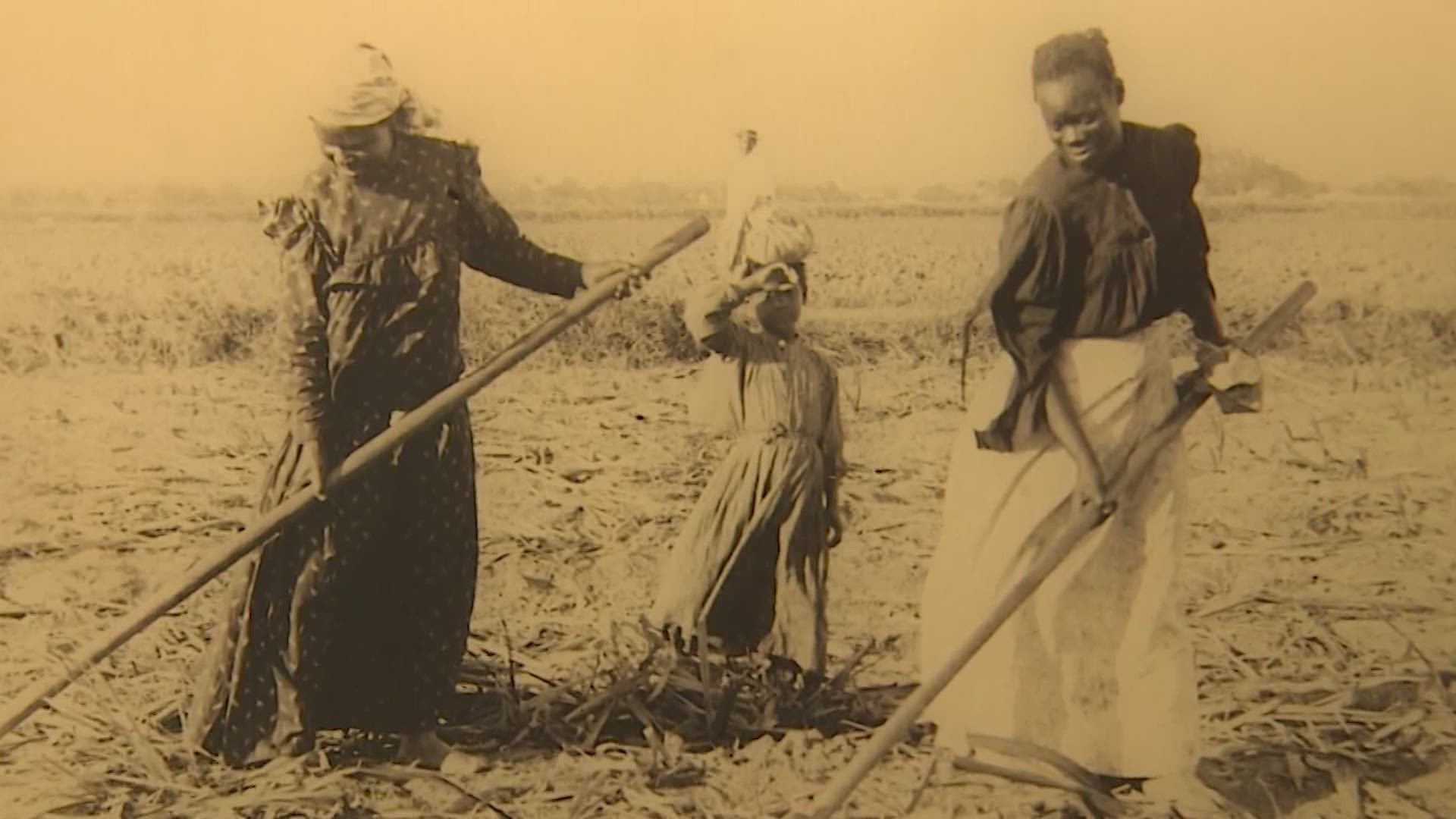WEST COLUMBIA, Texas — The history of Juneteenth starts in Galveston.
However, slavery was a huge part of all southeast Texas long before Emancipation.
According to Mark Osborne, lead educator at Varner-Hogg Plantation, in 1850, 70 percent of the people living in Brazoria County were slaves.
Today, it serves as a historical site where they're honoring their lives. It also ensures its dark history is never forgotten.
The beauty of Varner-Hogg Plantation is undeniable and even peaceful at times. But it’s a far cry from the haunting past planted in its soil.
William Polley works as an educator at the plantation.
“For a lot of people, they look at slavery as if it didn’t happen,” Polley said.
In the 1800s, it was owned by the Patton family.
“They came out of Kentucky in about 1833, brought about 60 enslaved people from Kentucky to build the sugar cane plantation," Osborne said.
During its time as Patton Plantation, more than 200 people were kept as property.
“It would probably be people out in the fields tending to the sugar cane getting ready to harvest. It will probably be people in the house working for no pay," Polley said.
Enslaved people would be set free 156 years ago on June 19, 1865.
“It’s definitely a difficult history to have to come face-to-face with part of our past that’s not as celebratory, let say as some of our other Texas history,” Osborne said.
“This is all part of our history. We’re all under this one American history. Black history and American history go hand in hand," Polley said.
He said working at the plantation makes the past come to life.
“You can read about it in books all day, but when you actually come out here and experience, it just gives you a different feeling,” Polley said.
The Varner-Hogg Plantation is working on a Descendants’ Project where Black families with ties to the plantations are asked to bring in family photos, documents and even bibles.
People may be able to find ancestors they never knew existed.

